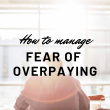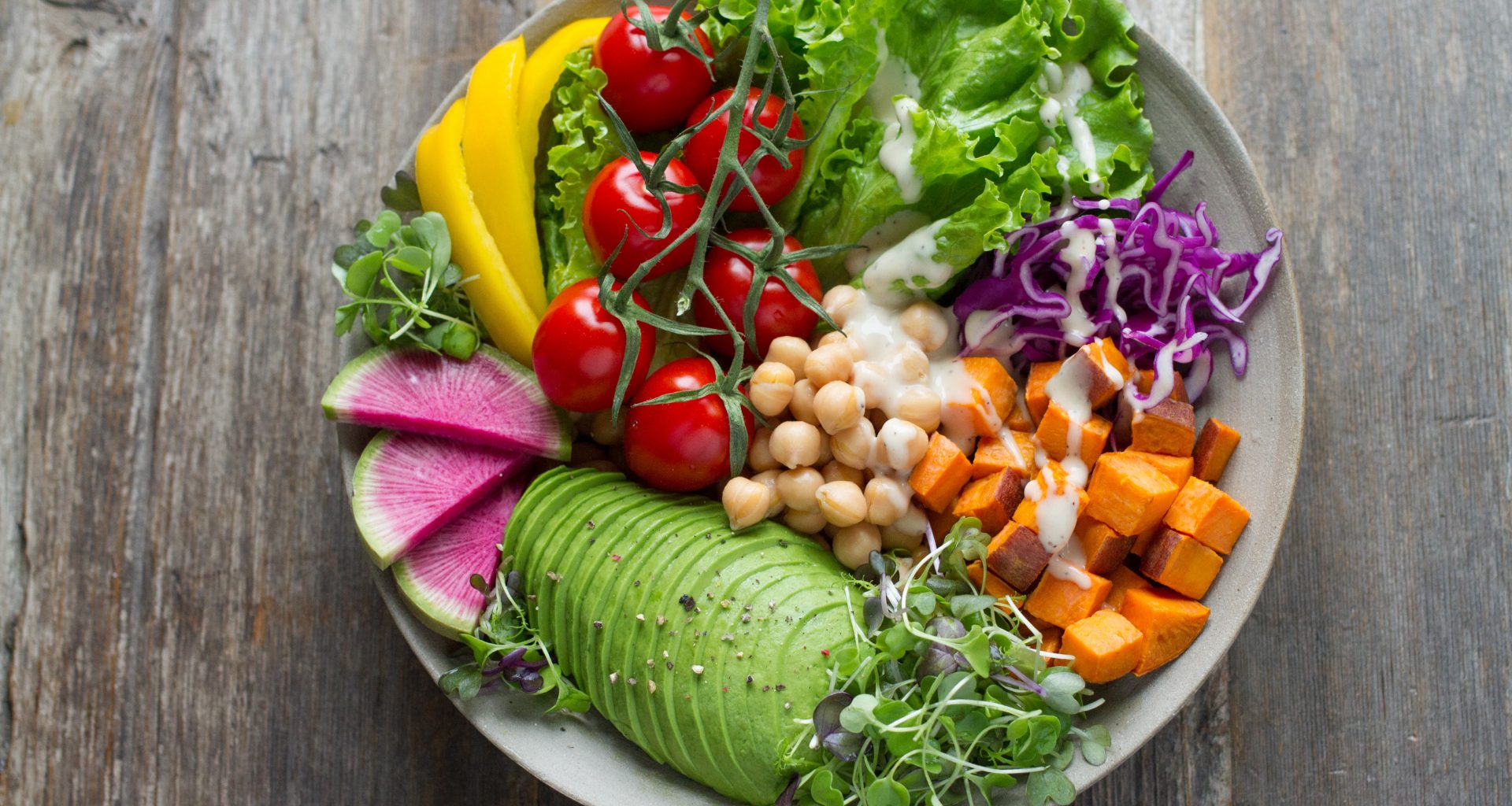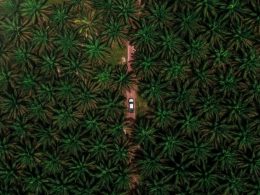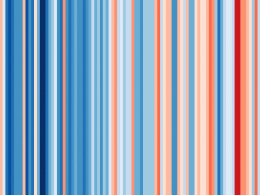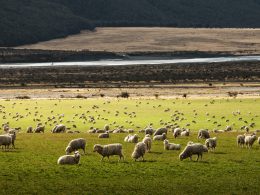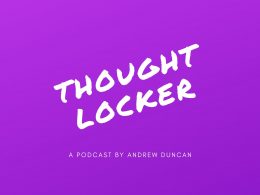You don’t need to change your entire diet and go vegan to help reverse climate change.
One meal makes a difference. Your next meal makes a difference. You have an opportunity to help save the planet every single time you sit down to eat, no matter what your normal diet looks like.
Meat (particularly Beef) is highly resource-intensive to produce.
It’s clear from countless studies undertaken around the world, that eating less meat will help us reduce our carbon footprint. Most people understand this, but the immediate follow-up thought is… “But I could never go vegan. There is no way I could give up meat and cheese.”
When it comes to food though, the use of labels like ‘vegan’ can be counter-productive. It can make a plant-rich lifestyle seem lofty and unobtainable. Personally, I follow a vegan diet, but the switch only happened a few years ago. Prior to that, I looked at vegans the way a weekend jogger looks at ironman athletes, with awe and admiration but not the faintest hope of emulation.
Labelling food as ‘vegan’ or ‘vegetarian’ connotates that you need to be in one camp or the other. You are either in or out.
Life simply doesn’t work like that. In real life, every day is a new day and every day you start with a clean slate. Just because you ate a bag of chips last night doesn’t mean you aren’t a ‘healthy eater’. You are the summation of all your regular habits and choices. You are not defined by one decision when it comes to food.
“The best way to excuse oneself from a challenging idea is to pretend that there are only two options…”
Jonathan Safran Froer, We Are The Weather
Just because you don’t run a marathon every time you put on your running shoes, is your 5km run worthless? Of course not. You don’t have to be an Olympic level runner to make your weekend jog worthwhile.
You don’t have to give up meat forever to reduce your carbon footprint. Don’t get me wrong, I’d love it if you did give up meat, but I know what it’s like to be in your position. It took me 32 years to learn how to eat.
Here is another quote that explains it well…
“There is something about eating animals that tends to polarize: never eat them or never sincerely question eating them; become an activist or disdain activists. These opposing positions—and the closely related unwillingness to take a position—converge in suggesting that eating animals matters. If and how we eat animals cuts to something deep. Meat is bound up with the story of who we are and who we want to be, from the book of Genesis to the latest farm bill.”
Jonathan Safran Froer in ‘Eating Animals’
The simple truth is…
Every time you choose to reduce your consumption of animal products for 1 meal, you are helping reverse climate change. No matter what else you ate that day.
“But! (I hear you saying) one person doesn’t make a difference, do they?”
This used to be how I felt too until I read ‘Doing Good Better‘ by Will MacAskill.
I will let him explain…
If one person decides against buying chicken breast one day but the rest of the meat-eaters on the planet continue to buy chicken, how could that possibly affect how many chickens are killed for human consumption? When a supermarket decides how much chicken to buy, they don’t care that one fewer breast was purchased on a given day. However, if thousands or millions of people stopped buying chicken breasts, the number of chickens raised for food would decrease – supply would fall to meet demand. We’re then left with a paradox: individuals alone can’t make a difference; millions of them acting together can; but the action of millions is simply the combined actions of many individuals.
Moreover, an iron law of economics is that, in a well-functioning market, if demand for a product decreases, the quantity of the product that’s supplied decreases.
How, then, can we reconcile these thoughts?
The answer lies with expected value. If you decline to buy some chicken breast then most of the time you’ll make no difference: the supermarket will buy the same amount of chicken in the future. Sometimes, however, you will make a difference.
Occasionally the meat buyer will assess chicken-breast sales and decide to decrease stocks, even though they wouldn’t have done so had the number of chicken breasts sold been one higher. (Perhaps they follow a rule like: ‘If monthly sales fall below 5,000, decrease stock intake by 20%.’) And when that buyer does decide to decrease their order, they will decrease it by far more than your single non-purchase.
Perhaps your decision will have an effect only 1 in 1,000 times, but it will spare around 1,000 chickens when it does.
William MacAskill in ‘Doing Good Better’
Your Actions Matter
I find there to be a commonality amongst many people I know: They think that individual change makes little difference to society as a whole.
It seems like this has somehow been programmed into us from an early age. When did we become so defeatist? You see this conditioning coming through when a societal issue is raised and the person you are communicating with instantly moves to “The government has to do X to fix that”, or “All they need to do is change X and this would never be an issue.”
The person offering these opinions is often absolutely right, but it’s far too easy to blame others, a.k.a the higher-ups. This might not feel wrong in any way, but if that same person chooses to take no personal action to bring about change, then they are using this line of reasoning to absolve themselves of their personal responsibility to take action.
Change will occur if enough of us demand it.
Or, if enough of us just act as though change has already happened.
For example, if the government won’t charge single-use plastic manufacturers a ‘tax’ to account for the environmental damage of their products, just try to buy less of the stuff yourself.
If enough people take this action, the amount of single-use plastic in the world will reduce. It’s inevitable.
The action of millions is simply the combined actions of many individuals.
In other words, be the change you want to see.
And you don’t have to be perfect! That’s not the point at all. Just try and make conscious decisions and know that every time you make an earth-friendly decision, you are helping the lives of countless future generations to come.
Your decisions will save lives.
As humans we find it challenging to consider the long term ramifications of our actions. We crave immediate answers and results. We care about short term wins and losses.
Sadly, Climate Change doesn’t offer instant feedback loops. It’s like putting on weight. You don’t notice the day to day change, but one day you wake up and look in the mirror and know it’s gone too far.
A 2015 study found that human-caused climate change was a major trigger of Syria’s brutal civil war. The war that helped drive the rise of the terrorist Islamic State of Iraq and Greater Syria (ISIS) was itself spawned in large part by what one expert called perhaps “the worst long-term drought and most severe set of crop failures since agricultural civilizations began in the Fertile Crescent,”
Joseph Romm in ‘Climate Change’
And this…
Currently, there are 354 major cities with average maximum summertime temperatures of 95 degrees Fahrenheit or higher. By 2050, that list could grow to 970, and the number of people living in those cities and exposed to that deadly heat could grow eightfold, to 1.396 billion.
From ‘Uninhabitable Earth’ by David-Wallace Wells
Lessons from Covid-19
When Covid-19 scourged its way across the world, a simple message came through. Stay home. Save lives. The genius of this creed is in its simplicity. Everyone understands the immediate impact they are having by making a personal choice not to do anything.
When it comes to saving the planet from extreme global warming, the message is simple too.
Choose plant-based food over animal products. Save lives.
Choose chickpeas over steak. Save lives. It doesn’t have to be every day, but when you see the opportunity, take it. Your choices matter.
What is the opposite of someone who eats a lot of meat, dairy and eggs?
A vegan?
No. It’s someone who is attentive to how many animal products they eat. You don’t have to go vegan to help save the planet.
Let me leave you on this…
I know what you’re thinking. The planet is f*cked anyway, there is no hope for us.
This fatalism is another way that we, as humans, absolve ourselves of our personal responsibility.
Let us not give up so easily. Be the change you wish to see in the world. And remember, no matter how bad global warming gets, it can always get worse. That’s one crazy beauty of this horrible worldly affliction.
No matter how far we let things slide before we make changes, it’s always, always going to be worth pursuing positive change, to save future generations from a more challenging existence.
Just like what you eat is not a binary decision (vegan vs meat-eater), climate change is not binary either. It’s not a switch that we turn on or off.
The planet is heating up. It’s simply a matter of how bad we let it burn.
Ready to make positive changes?
Check out our Good you can do podcast:




